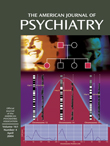My First Psychotherapist
In the 1950s all freshmen at Yale were required to take a full year of physical education. The first semester was devoted to “posture” and “body building.” In the second semester we could begin to pursue the sport of our choice. I had been a rather poor athlete and hadn’t the slightest idea what sport to pick. Most of my classmates were varsity lettermen if not captains of their prep school teams and were recruited rather than asked to choose. Some had excelled in such sports as crew, squash, and lacrosse, which I had barely heard of.
The idea of four-wall handball appealed to me. First of all, it was very un-Yale; it was the sport of the common man rather than the aristocrat. I had seen one-wall handball played on the concrete streets and parks of New York City many times. I was also hoping that handball would attract the few Italians, Irish, Jews, and others of the Untouchable caste at Yale to its ranks.
So, while walking about the huge gymnasium I came upon Joe Rosamondo. He was instructing an upperclassman in handball. There was a small target on the front wall, and like Queequeg with his harpoon, he hit the target effortlessly with every shot. I was impressed.
“I’m Joe Rosamondo, four-wall handball coach. Do you want to play handball?”
“Yes, I guess so, but I have never played before.”
“Throw the ball up against the front wall with your right arm.”
I threw the ball against the wall. Joe looked at the senior and said, “Isn’t that fantastic? A natural.”
“Now, Druss,” he said, “Handball is played with both arms. Throw the ball with your left arm.” I did, and it floated to the front wall.
“Are you sure you never played handball before?”
This was the first compliment I had received about my athletic ability in my entire 18 years. I would have gone to battle for him.
“Now get out, Mark,” he told the senior. “I want to teach this Druss how to play four-wall handball.” With extraordinary patience he taught me the rudiments of the game, especially how to “get it off the back wall,” a prerequisite for even elementary play. Although numerous, his criticisms were never hurtful or belittling. (This was in contrast to what I had encountered in every prior athletic experience.) I actually started to enjoy handball!
I played handball three times a week at college in spite of chemistry labs, and I managed to play on the intercollegiate team for my undergraduate dormitory. Joe gave me a few playing lessons each month. After medical school, I continued to play at the local “Y” Sunday mornings until just a few years ago.
I have been back to college a few times. It was the home of many spellbinding teachers. But the only one I ever stopped in to see was the one who taught me the most—Joe Rosamondo.
I learned two important psychotherapy lessons from Joe.
The first has to do with the well-known therapeutic principle of neutrality: therapists are supposed to be neutral and nonjudgmental about everything our patients tell us. I subscribe to this axiom; it is, after all, the patient’s life to lead. So, if he or she chooses to work hard, or not at all; if he or she prefers gin to gin rummy, to stay gay or go straight, to marry and have six children or become a cloistered nun, it is his or her own business and I try my best not to impose my own preferences or values. But I’m always for the patient and, in any conflicted choice, for what he or she believes to be their healthier or better self. Here I am not neutral; like Joe Rosamondo, I encourage them. His words of enthusiasm and praise, first given to an awkward and gawky college student, have stayed with me. I have tried to pass them on to the many patients I have seen over the last 40 years who were sick in body or spirit.
The second lesson I learned from Joe Rosamondo may be even more important than the first: a good heart is worth more than a good mind.
Address reprint requests to Dr. Druss, 180 East End Ave., New York, NY 10128.



